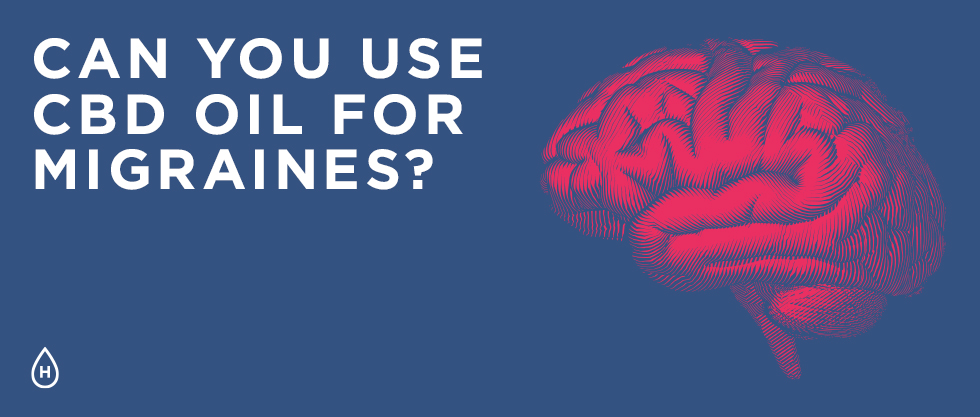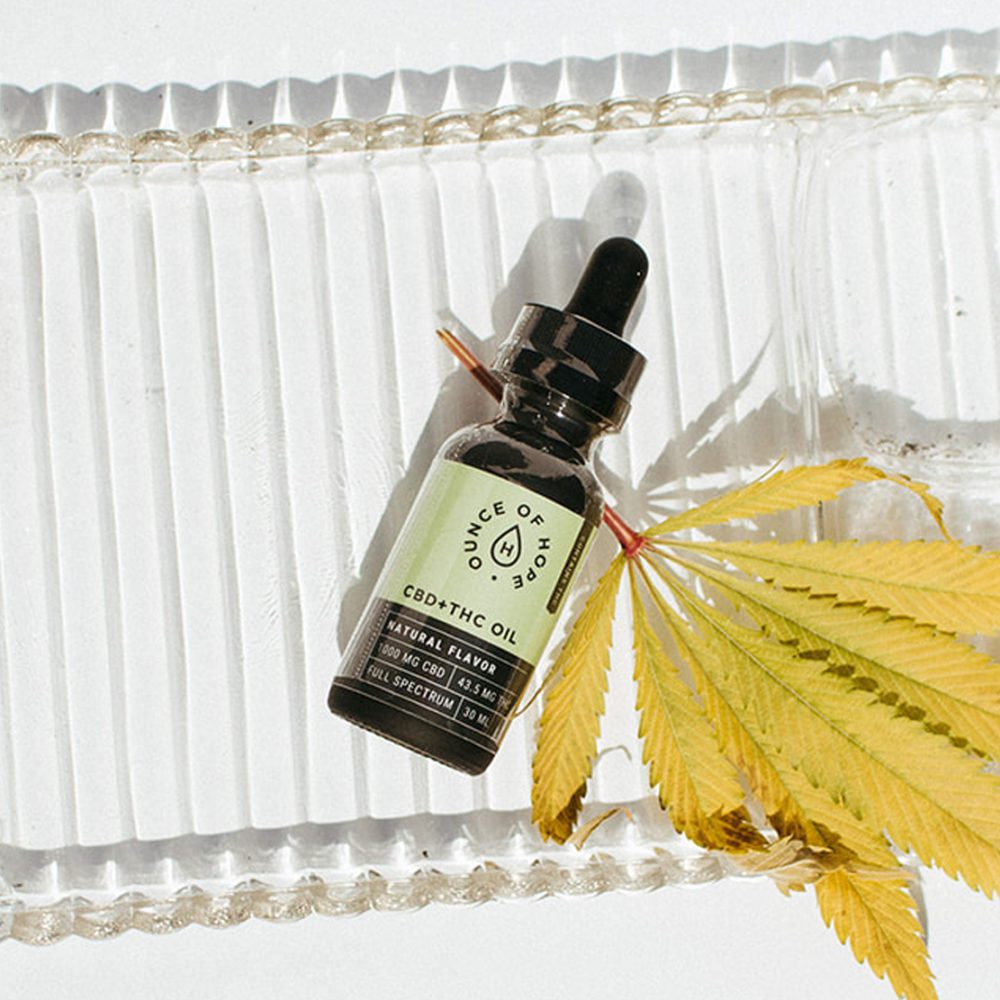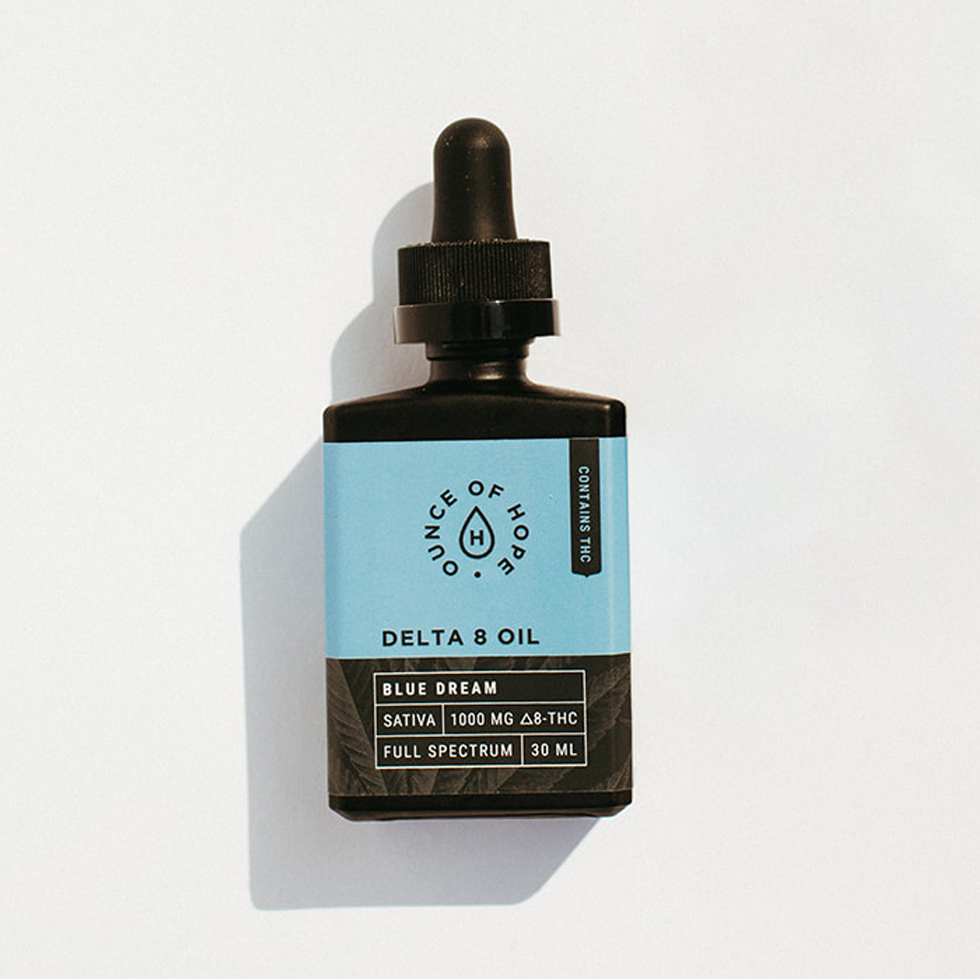CBD is still finding its footing in the ever-changing, fast-paced field of medical cannabinoid research. Applications for cannabidiol are still in their infancy with clinical trials underway to test and confirm findings. As it stands, CBD has massive potential to help with a wide array of chronic conditions. Part of what’s being studied currently is CBD’s potential impact on migraines. Can you use CBD oil for migraines?
In the United States alone, over 36 million people suffer from this debilitating condition. Many are unable to find consistent relief from the crippling pain it can cause, sometimes in episodes. Those suffering from chronic migraines must endure attacks with disabling intensity. Migraine sufferers can be robbed of their energy, the ability to enjoy the day, and spending time with loved ones.
The devastating truth is that migraines are not something that can currently be cured. Patients must instead practice pain management. Unfortunately, this often means relying on over-the-counter medication like ibuprofen, paracetamol, or aspirin. While this can ease symptoms, there are also limitations, especially with how much can safely be administered at a time.
The limitations on current medication are what started researchers on the journey for pain relief alternatives. Some researchers have started to investigate the potential relief properties found in CBD. It’s what we want to dig into with this guide. Can you use CBD oil for migraines? It’s our goal to help you answer that question more clearly today.
The History On: Can You Use CBD Oil for Migraines?
Currently, cannabidiol could potentially be a less restrictive measure to self-managing the debilitating symptoms of a migraine. Especially compared to the most readily accessible painkillers on the market, CBD is safer for the body to process.
And even though cannabis is still a hot debate, especially in the US, its medical applications aren’t exactly new. We can trace back cannabis’ medical use all the way to 400 AD. Early civilizations utilized the plant as medicine, which we can see now was partially thanks to its CBD content.
Even in the United States, cannabis was used as a treatment option into the 19th and early 20th centuries. In fact, the plant’s legal status didn’t change in the US until 1937 with the Marihuana Tax Act. This precluded the eventual drop of cannabis from the Pharmacopeia in 1942.
Then, users faced even more powerful penalties for cannabis possession in 1951 and 1956. This new wave of restriction was known as the Boggs and Narcotics Control Acts. Eventually, it led to cannabis prohibition under federal law completely with the Controlled Substances Act of 1970.
Progress in the use of medical cannabis would not resurface in the mainstream for 26 years. Finally, though, California became the first state to allow certain patients the ability to use botanical cannabis — under physician supervision. This was known as the Compassionate Use Act. It reignited the debate that cannabis was an effective and safe alternative to other pharmaceutical solutions.
The Current Scope of CBD
As of 2021, 36 states have laws that allow patients access to medical cannabis. Legality in over half the country has reignited the desire for necessary cannabis research. Federal law hasn’t changed its tune just yet, so bud is still a federally controlled substance. However, research gains acceptance on the subject, opening the door to more complex clinical trials with human participants.
In other words, there’s been a progressive shift in how cannabis is viewed in the medical community. Now, medical researchers are able to dedicate time to making effective, safe treatments centered around chemical compounds found in cannabis.
One of the most promising of these compounds is CBD, or cannabidiol.
Funding can still be difficult to acquire for this particular area of research. However, it gets easier as the public’s opinion leans more in favor of cannabis legalization every day. This allows researchers to more readily test and receive positive results, further cementing CBD’s potential. Every successful research venture unlocks ease for the next research.
A growing conglomeration of that research suggests that CBD has pain relief potential. It’s potentially effective against neurological pain and the various conditions linked to it – including, migraines. That’s right. When wondering, “Can you use CBD oil for migraines?” the answer gets close to “yes” as research paves the way.
CBD’s effect on neurological pain could be from CBD preventing the body from metabolizing anandamide. Anandamide is an arachidonic acid derivative that plays a role in the body’s sensation of pain. Preventing it from metabolizing helps it maintain high levels in the bloodstream. This, in turn, may reduce your feelings of physical pain.
Other Ways CBD Oil Could Help with Migraines
As far as physical manifestations go, researchers look at CBD as a possible anti-inflammatory agent. This could also possibly lead to further pain reduction and lessened symptoms.
The largest obstacle to CBD becoming a mainstream treatment for chronic pain lies with the lack of FDA approval. This is due to the lack of federal legalization. Cannabis is still classified as a Schedule 1 substance under the Controlled Substance Act.
The only medication that consists of a CBD derivative currently FDA-approved is Epidolex. Epidiolex is used in the treatment of seizures that are present in two forms of early childhood-onset epilepsy.
Still, the lack of FDA approval hasn’t stopped researchers from looking into the potential. There’s a multitude of benefits CBD may have to offer. Ongoing case studies look to have promising answers for what those benefits are.
In the meantime, more work needs to be done before it’s safe to say scientifically and without a doubt, CBD oil helps with migraines. Anecdotally, though, some people are finding much-needed relief with CBD products.
Research on CBD and Cannabis for Pain
Even with limited funding and a hard upward hill to climb, cannabis researchers are doing their best to make progress. The quest to treat migraines and other neuropathic diseases is always onward.
A 2016 study looks at how cannabis may reduce the frequency of migraines. The broad nature of the study was over cannabis, so it didn’t specifically target CBD as the primary compound. A 2017 clinical review determined that was enough anecdotal evidence to warrant a higher-quality clinical trial.
In 2018, a separate review outlined how cannabis was a promising new player in the fight against chronic pain. This includes chronic pain from migraines. A 2020 study reflected these results. CBD could possibly help relieve chronic body pain, reduce certain types of inflammation, and improve sleep.
Though studies are becoming much more frequent, there’s still nothing conclusive about CBD oil as an isolate. With all the research done, we still need more before answers can be made concrete. In the meantime, over-the-counter CBD products remain without the FDA’s approval. That means there’s no standardized dosage for CBD — when it comes to effectively treating migraines, or anything else.
Final Thoughts: Can You Use CBD Oil for Migraines?
As it stands, more studies are being conducted to evaluate the long-term effects and tolerability of CBD. This research will also dive into how cannabidiol affects people with episodic or chronic migraines.
To wrap up this guide, no official claims can yet be made about the exact effects of CBD on migraines. We do see many testimonials and anecdotal evidence from individuals who’ve tried CBD for themselves, though. Claims across the nation allude to inflammatory and pain relief thanks to cannabidiol. Users find their migraines less severe and shorter, which they attribute to the CBD oil they take.
Maybe you’re struggling with migraines or even just intense headaches. Over-the-counter meds might not cut it for you. It may be time to ask your doctor what steps to take for your own personal treatment. In reality, pain can become treatment-resistant. It’s beneficial to ask your personal care provider if a neurologist referral is in order. Alternatively, you might try asking them about CBD.
Can you use CBD oil for migraines? Everyone is different. If you suffer from migraines, maybe this is a sign to give CBD oil a try.




